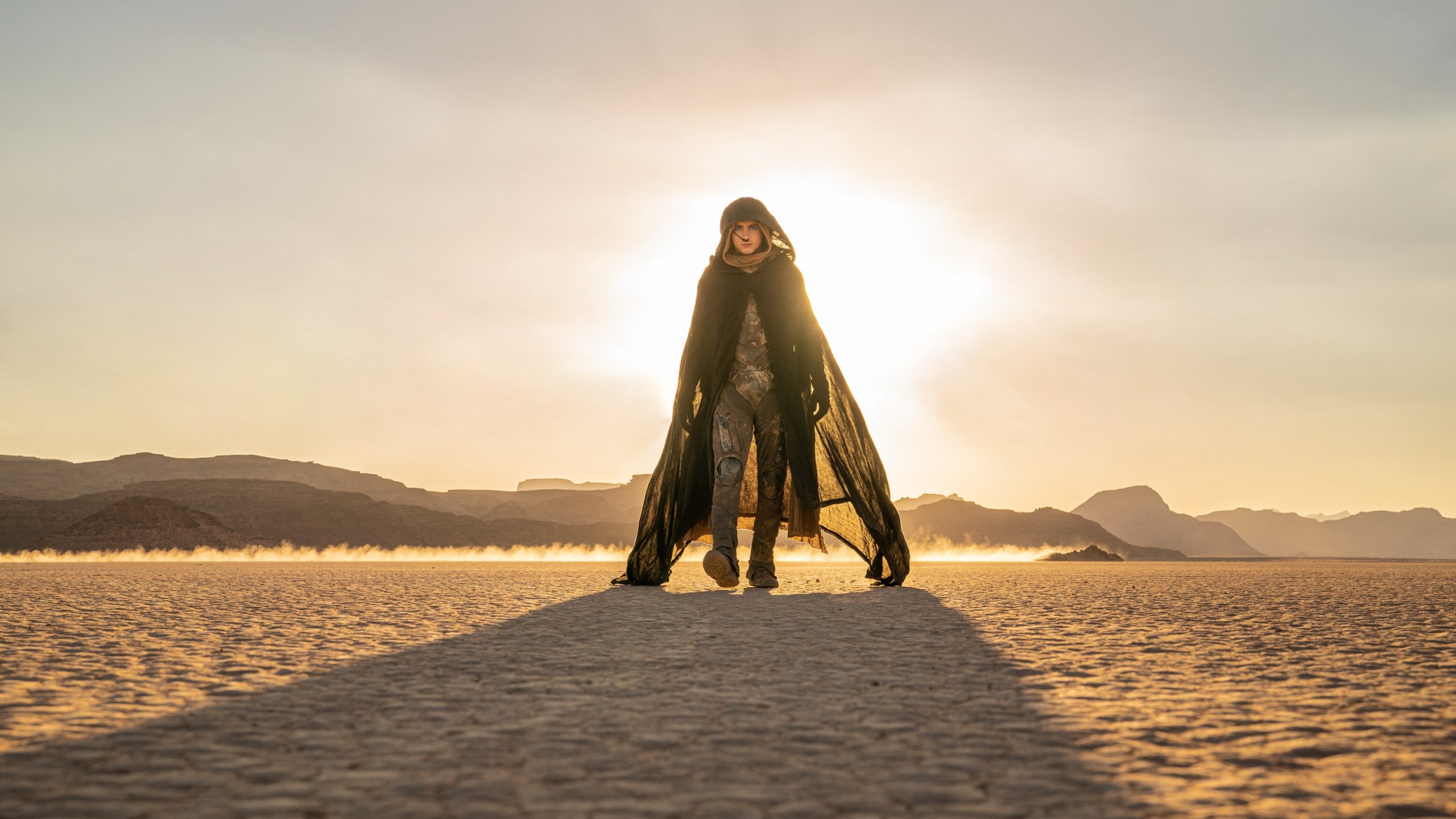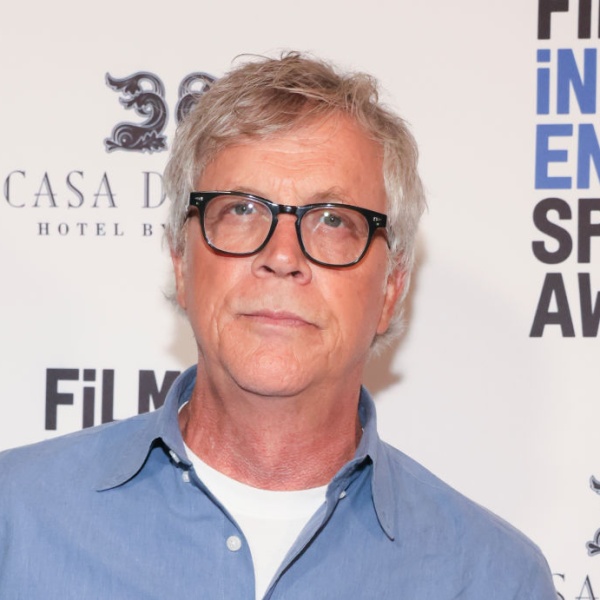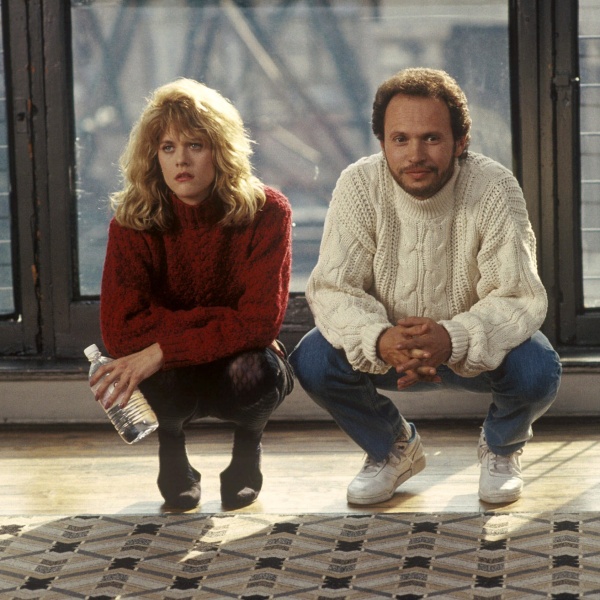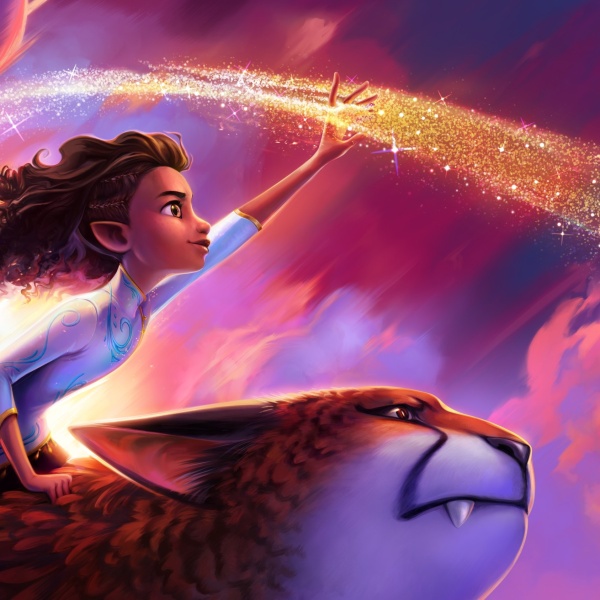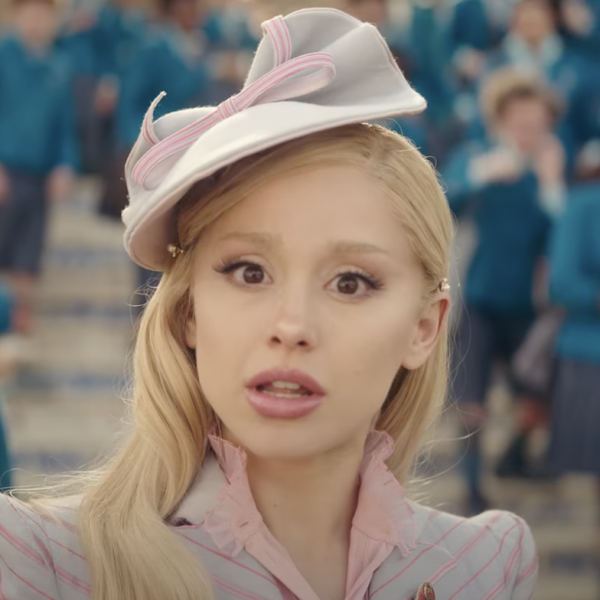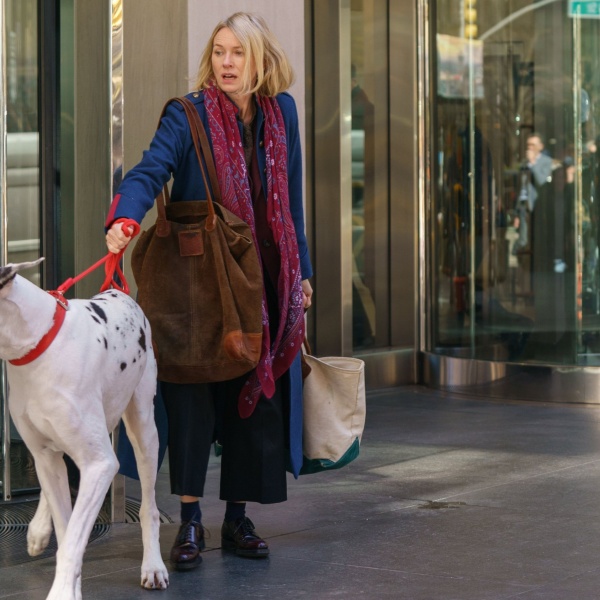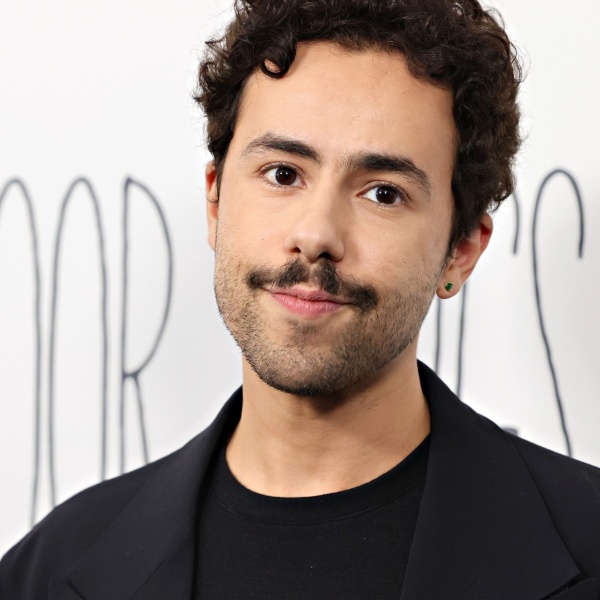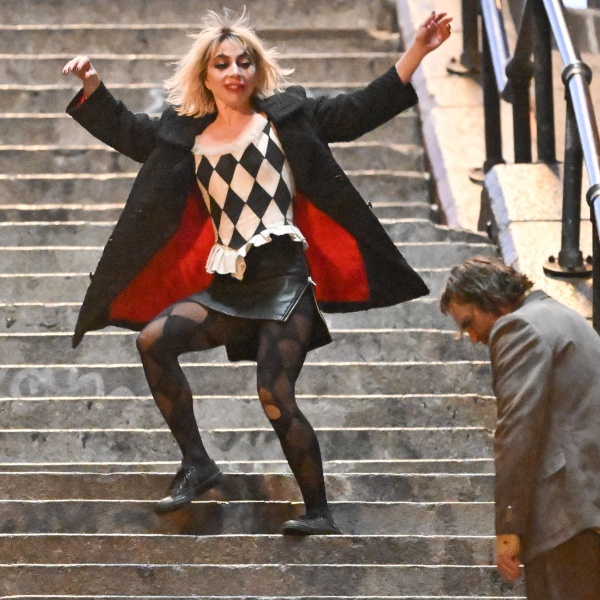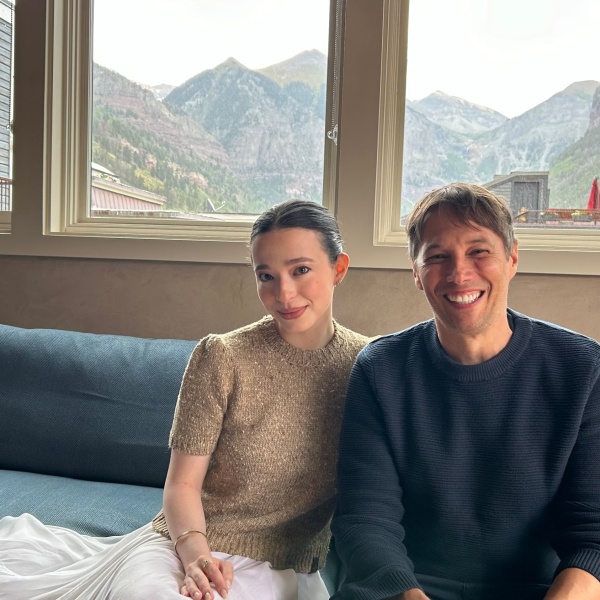Nominations voting is from January 8-12, 2025, with official Oscar nominations announced January 17, 2025. Final voting is February 11-18, 2025. And finally, the 97th Oscars telecast will be broadcast on Sunday, March 2 and air live on ABC at 7 p.m. ET/ 4 p.m. PT. We update our picks throughout awards season, so keep checking IndieWire for all our 2025 Oscar predictions.
The State of the Race
This season, the Academy shortlist for Best Original Score has expanded from 15 to 20 titles, and now up to three composers will be allowed to receive the Oscar. In terms of the race, “Dune: Part Two” (Warner Bros.) is the early favorite, joined by such standouts as “Challengers” (Amazon MGM Studios), “Furiosa: A Mad Max Saga” (Warner Bros.), “Inside Out 2” (Pixar/Disney), and “The Wild Robot” (DreamWorks/Universal).
The festival season will see the premieres of “Blitz” (Apple TV+), “Conclave” (Focus Features), “Queer” (A24), “Joker: Folie à Deux” (Warner Bros.), “Nickel Boys” (Amazon MGM Studios), and “The Piano Lesson” (Netflix). The fall/holiday contenders include “Emilia Pérez” (Netflix), “Gladiator II” (Paramount), “Megalopolis” (Lionsgate), “Nosferatu” (Focus Features), and “Wicked” (Universal).
In Denis Villeneuve’s “Dune: Part Two,” Hans Zimmer expands on his Oscar-winning score for “Dune” by musically exploring Paul (Timothée Chalamet) leading the Fremen in battle and assuming his messianic destiny. There is more intense action scoring as Paul takes on the Harkonnens, the Emperor (Christopher Walken), and plots his control of Arrakis.
With “Challengers,” director Luca Guadagnino tackles the competitive nature of tennis as a love triangle involving former tennis prodigy-turned-coach Zendaya, her husband and slumping tennis champ Mike Faist, and low-circuit tennis player Josh O’Connor, who is her ex-lover and his former best friend. Composers Trent Reznor & Atticus Ross provide the perfect driving, thumping, techno score to accompany the hot, super-sweaty, competitive action on the tennis court.
George Miller’s “Furiosa” prequel is another wild ride deeper into the dystopian Wasteland, with the young, vengeful Furiosa (Alyla Browne and Anya Taylor-Joy) taking on Chris Hemsworth’s biker leader, Dementus, and carving a road for herself. Against this violent backdrop, composer Tom Holkenborg delivers another primal rock opera of sound and fury from metal and synths.
“Inside Out 2,” the animated sequel from director Kelsey Mann, introduced the hyperactive Anxiety (Maya Hawke) as the newest and most resonant emotion for 13-year-old Riley (Kensington Tallman). Pixar’s first female composer, Andrea Datzman, provides a score that musically embodies the emotional rollercoaster, blending melodic themes, intimate harmonies, and alternative pop-punk rock, wrapped around lush orchestrations.
“The Wild Robot,” directed by Chris Sanders, is an animated sci-fi adventure that finds robot Roz (Lupita Nyong’o) washed ashore on an uninhabited island and must adapt and live among the animals, including Brightbill (Kit Conor), an orphaned gosling bird, and a fox named Fink (Pedro Pascal). Kris Bowers’ score musically captures the convergence of Roz’s personal journey of survival and transformation with the sense of community that she witnesses among the animals on the island. The score also shares musical DNA with the original song “Kiss the Sky,” performed and co-written by Maren Morris.
“Emilia Pérez,” the genre-defying crime musical from Jacques Audiard, finds Zoe Saldaña’s disgruntled lawyer helping the titular Mexican cartel leader (Karla Sofía Gascón) with sex reassignment surgery to evade capture and affirm her gender. The operatic score by Clément Ducol and Camille conveys the surreal blend of family drama, narcotics thriller, and musical (with a dash of comedy). The score came to them in an experimental way after writing the songs. It blends with the dialogue, lyrics, and overall soundscape.
“Joker: Folie à Deux,” Todd Phillips’ musical thriller, picks up with Arthur/Joker (Joaquin Phoenix) facing the death penalty for multiple murders and striking up a delusional romance with Lady Gaga’s Harley Quinn while incarcerated in Arkham Asylum. Composer Hildur Guðnadóttir follows up her Oscar-winning “Joker” score by drawing out the tonality of Arthur’s inner anguish through strings with a custom-built “string prison,” which seeps into the songs that are his attempt to break free.
“Conclave,” Edward Berger’s follow-up to “All Quiet on the Western Front,” is a psychological thriller in which Ralph Fiennes’ Cardinal searches for a successor to the deceased Pope, who harbored a dark secret. “All Quiet” Oscar-winning composer Volker Bertelmann delivers a score that varies from sacral pieces to thrilling energetic compositions for tension and sensitivity.
“Gladiator II,” Ridley Scott’s sequel to his Oscar winner, takes place two decades later, when Lucius (Paul Mescal), the former heir to the Empire, is forced to enter the Colosseum as a ruthless gladiator. There, he faces Pedro Pascal’s Roman general, Marcus Acacius. Harry Gregson-Williams’ score embodies the spiritual essence of the original film while creating a fresh sound for Lucius, who required a versatile melody that conveys his love, leadership, rage, and vengeance. Unique instrumentation included a baritone violin, electric cello, and primitive horns that help recall ancient Rome.
“Nosferatu,” Robert Eggers’ passion project, reworks the legendary silent vampire film by F.W. Murnau with Bill Skarsgård as the infamous Count Orlok, Lily-Rose Depp as Ellen Hutter, and Nicholas Hoult as her husband. Robin Carolan, the director’s go-to composer, captures the intense terror and dread as well as the tragedy and doomed romanticism of this gothic re-imagining. He combines large-scale orchestral work with authentic Eastern European instrumentation and unnerving sound design.
“Nickel Boys,” RaMell Ross’ adaptation of Colson Whitehead’s Pulitzer Prize-winning novel, explores two Black teenagers (Ethan Herisse and Brandon Wilson) who become wards of a barbaric juvenile reform school in Jim Crow–era Florida. Composers Alex Somers and Scott Alario lean into the film’s sensory experience with an experimental musical approach: They captured a children’s choir with cassette recorders, tape delays, and field recordings from the set to create an ethereal and textural sonic environment that underscores the dark tragedy.
As for the rest: “Blitz,” by British director Steve McQueen, concerns Londoners during the Blitz of World War II and centers on a young boy (Elliott Heffernan) sent to the countryside for safekeeping, who’s determined to reunite with his mother (Saoirse Ronan) and grandfather (Paul Weller) at their London home. With his score, Zimmer no doubt will capture the horror of the bombings, the nuances of the London community, and the intimate family drama at its core.
“Megalopolis,” Francis Ford Coppola’s $120 million epic sci-fi passion project, is set in a New York-like metropolis called New Rome. After an accident destroys the decaying city, an architect (Adam Driver) with the power to control time attempts to rebuild it as a utopia through his miracle-building material, Megalon, but is met with resistance from the old guard. Go-to composer Osvaldo Golijov provides a lush score reminiscent of the great Miklós Rózsa.
“The Piano Lesson,” Malcolm Washington’s adaption of the August Wilson play starring John David Washington and Samuel L. Jackson, explores the lives of the Charles family in Depression-era 1936 Pittsburgh and the importance of the cherished family heirloom: a piano carved by their enslaved ancestor. Composer Alexandre Desplat, the master of melancholy, is perfect for scoring this story about legacy and self-worth.
In “Wicked,” Jon Chu’s adaptation of the Broadway musical by Stephen Schwartz and Winnie Holzman, composer John Powell scores in collaboration with Schwartz. It’s about the unlikely friendship between Elphaba (Cynthia Erivo), a misunderstood girl with green skin, and the popular Galinda (Ariana Grande), who eventually become the Wicked Witch of the West and Glinda the Good.
“Queer,”* Guadagnino’s much-anticipated adaptation of William S. Burroughs’ semi-autobiographical novella about disconnected gay American expatriates in post-World War II Mexico City, finds heroin user William Lee (Daniel Craig) falling for the much younger and enigmatic Eugene Allerton (Drew Starkey). Their romance becomes an odyssey filled with psychedelic surrealism and great tenderness that ultimately takes them to the Ecuadorian jungle. No doubt Reznor & Ross will score this with a complementary musical odyssey.
“The Room Next Door” (Warner Bros.) marks Pedro Almodóvar’s English-language debut with an adaptation of the novel “What Are You Going Through” by Sigrid Nunez. It’s about the rekindling of a relationship between a war correspondent (Tilda Swinton), dying of cancer, and a former co-worker (Julianne Moore). Go-to composer Alberto Iglesias can be counted on to provide his eclectic blend of melodic orchestral and atonal avant-garde styles.
“The Brutalist” (Focus Features), from director Brady Corbet (“Vox Lux”), is a “Fountainhead”-inspired, 215-minute epic shot in 70mm, starring Adrien Brody as László Tóth, a Hungarian Jew and Auschwitz survivor who struggles as a visionary architect before being offered a massive project by Guy Pearce’s Lee Van Buren. Corbet tapped his friend, experimental British composer Daniel Blumberg, to handle the score following his free jazz flourish on “The World to Come.”
For Wes Ball’s “Kingdom of the Planet of the Apes” (20th Century Studios), which kicks off a new saga when apes rule, throwing together chimp teenager Noa (Owen Teague) and human Mae (Freya Allen), composer John Paesano pays tribute to Jerry Goldsmith’s iconic 1968 “Planet of the Apes” score. Key is “Human Hunt,” which interweaves Goldsmith’s “The Hunt” theme. Paesano enhances the original piano motif while modernizing the arrangement. At the same time, Paesano provides his own melodic and percussive signature to the sci-fi adventure.
“Better Man”* (Roadshow), from director Michael Gracey (“The Greatest Showman”), is a musical fantasy biopic about British singer Robbie Williams (who plays himself with Jonno Davies portraying the younger version). The score is by Batu Sener (“Harold and the Purple Crayon”), who’s previously worked in animation, including the “Ice Age” franchise.
“Eden,”* Ron Howard’s survival thriller, explores a group of Europeans seeking a new life in the harsh Galápagos Islands and getting sucked into a mystery. The cast includes Jude Law, Vanessa Kirby, Daniel Brühl, Sydney Sweeney, and Ana de Armas. Zimmer has yet another Oscar-contending score to show off his creative versatility.
“The Fire Inside” (Amazon MGM Studios), the directorial debut of cinematographer Rachel Morrison, is a coming-of-age biopic about young boxing phenom Clarissa “T-Rex” Shields (Ryan Destiny) training for the 2012 Summer Olympics in London. The score from composer Tamar-kali strikes a balance between Shields’ transformative journey and the rhythmic and percussive nature of boxing through strings, percussion, modern electronic sounds, and brass.
“The End”* (Neon), from Joshua Oppenheimer (“The Act of Killing”), is a post-apocalyptic musical with Swinton, Michael Shannon, and George MacKay as a musical family that sings and dances in an underground bunker after the end of the world. The score for this extravaganza is by Joshua Schmidt (“Midwestern Gothic”) and Marius de Vries (“NAVALNY”).
*These films do not yet have U.S. release dates
Potential nominees are listed in alphabetical order; no film will be deemed a frontrunner until we have seen it.
Frontrunners
“Challengers” (Trent Reznor & Atticus Ross)
“Dune: Part Two” (Hans Zimmer)
“Furiosa: A Mad Max Saga” (Tom Holkenborg)
“Inside Out 2” (Andrea Datzman)
“The Wild Robot” (Kris Bowers)
Contenders
“Better Man” (Batu Sener)
“Blitz” (Hans Zimmer)
“The Brutalist” (Daniel Blumberg)
“Conclave” (Volker Bertelmann)
“Eden” (Hans Zimmer)
“Emilia Pérez” (Clément Ducol and Camille)
“The End” (Joshua Schmidt and Marius de Vries)
“The Fire Inside” (Tamar-kali)
“Gladiator II” (Harry Gregson-Williams)
“Joker: Folie à Deux” (Hildur Guðnadóttir)
“Kingdom of the Planet of the Apes” (John Paesano)
“Megalopolis” (Osvaldo Golijov)
“Nickel Boys” (Alex Somers & Scott Alario)
“Nosferatu” (Robin Carolan)
“The Piano Lesson” (Alexandre Desplat)
“Queer” (Trent Reznor & Atticus Ross)
“The Room Next Door” (Alberto Iglesias)
“Wicked” (John Powell)
